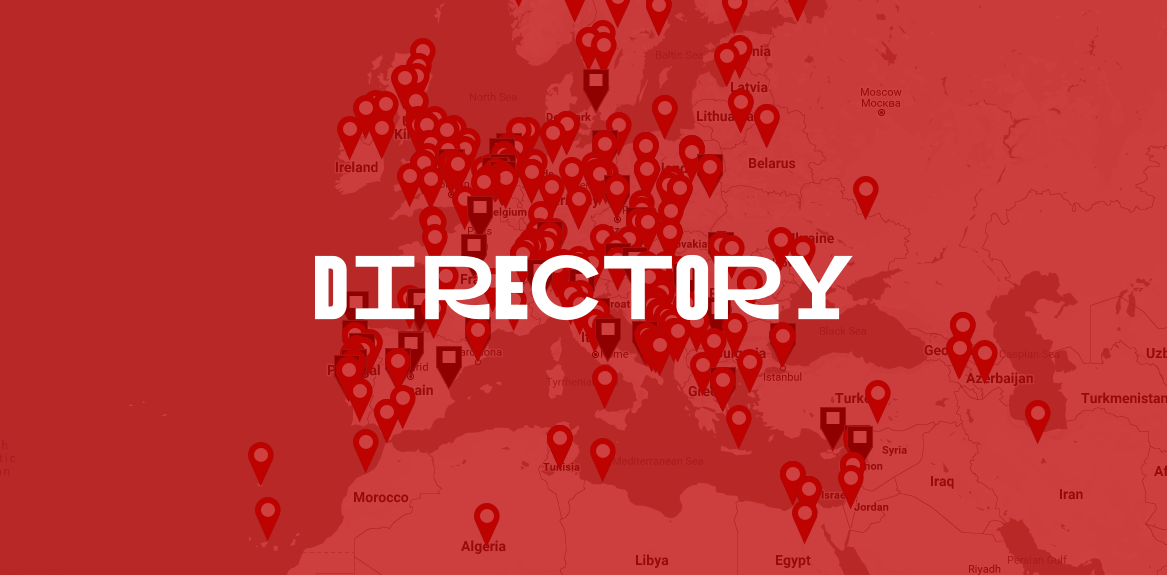
Imagining alternatives

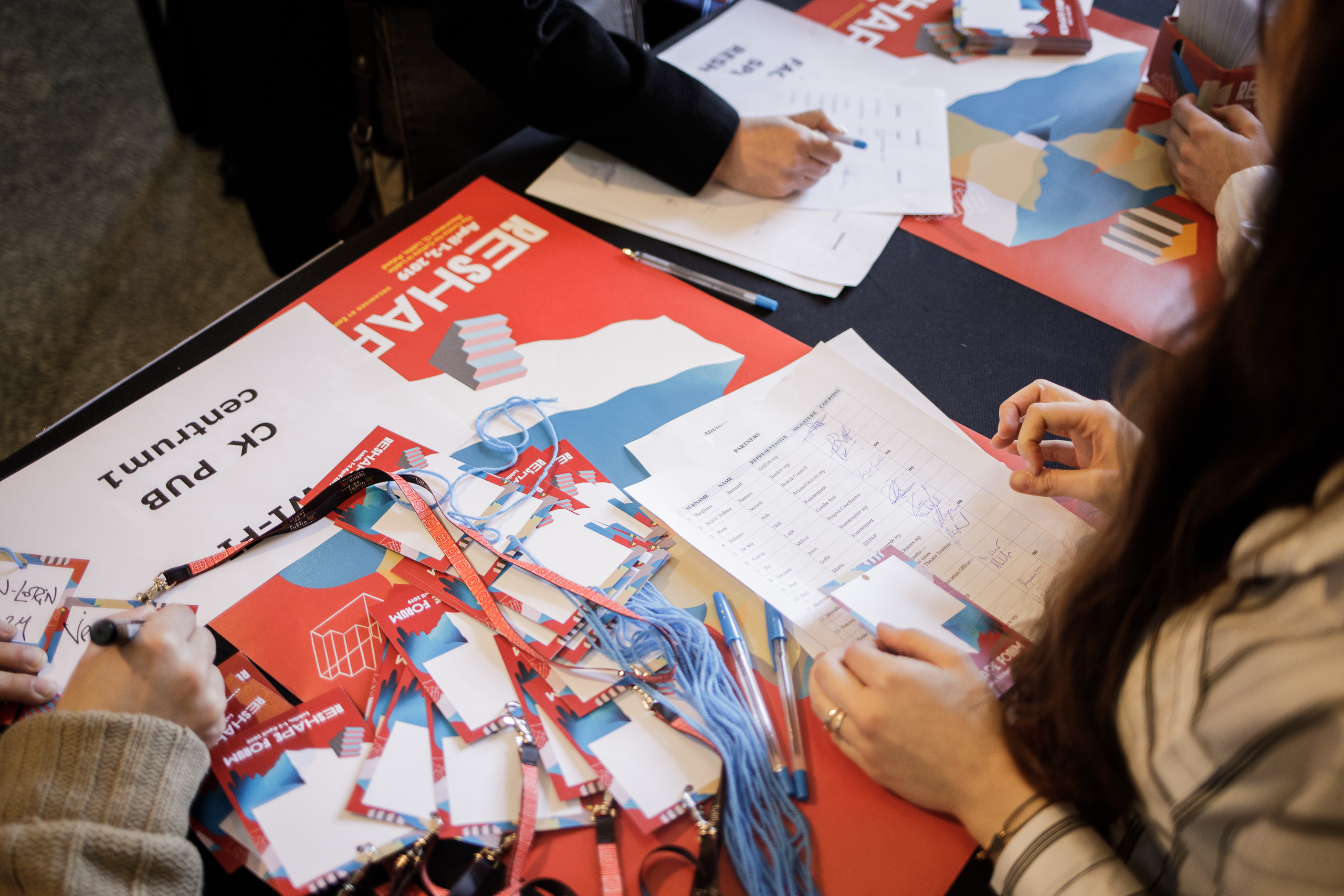
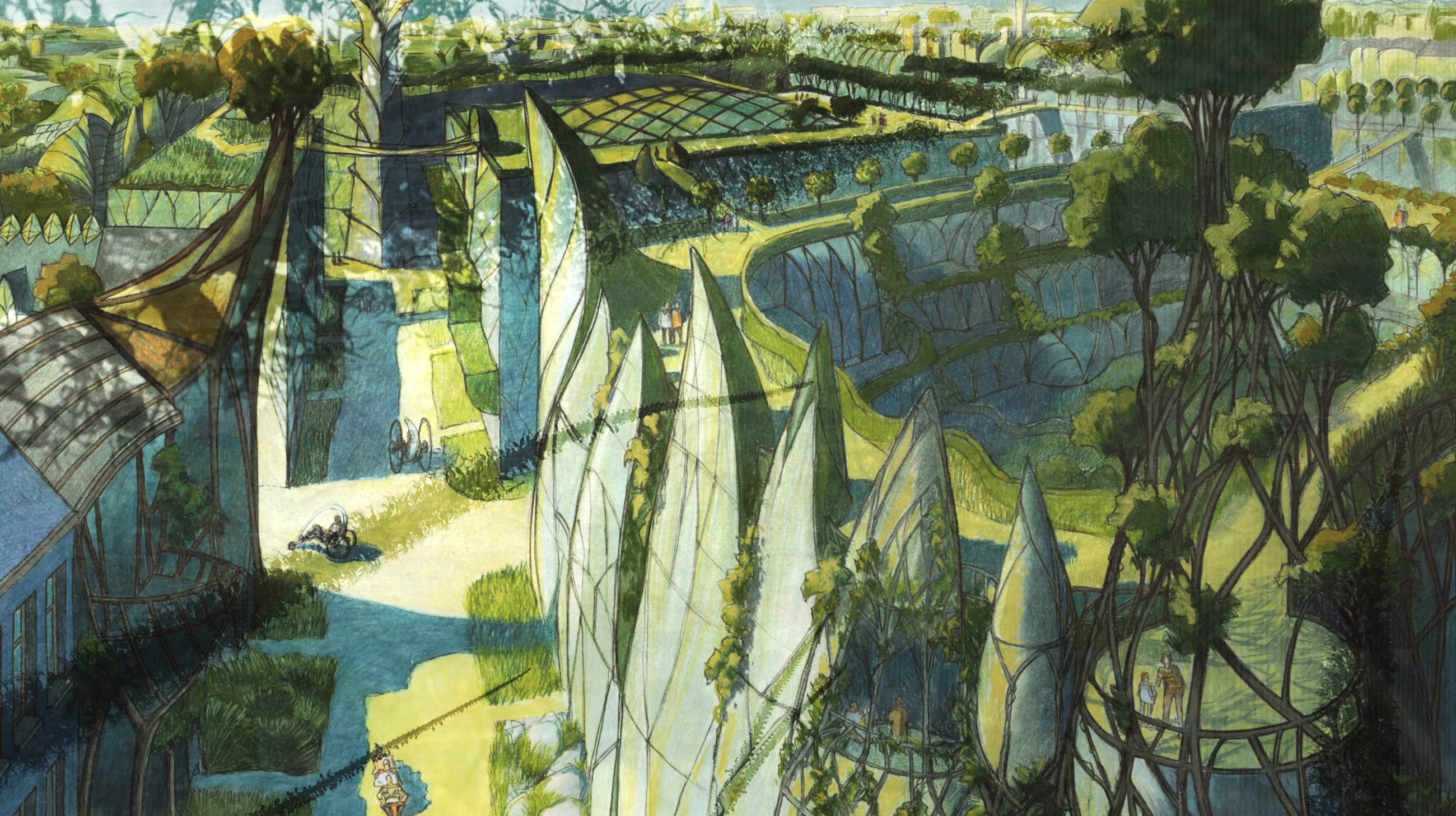
The Art of Futuring: Unknown, Unknowable and Uncertain.
This article is intended to provide a brief introduction to working with futures as artists and culture makers. One of the central concerns is how and why Futures can provide useful methods for increasing agency and encouraging co-creation of our collective futures. It is about why futuring is important for everyone, not just corporations and governments. It describes what we at FoAM understand by futuring, our interpretation of the (pre)history of Futures and a few suggestions about where it might be able to take us. It touches on the crossovers between art, design and futures and ends with a proposition for more widespread futures literacy.

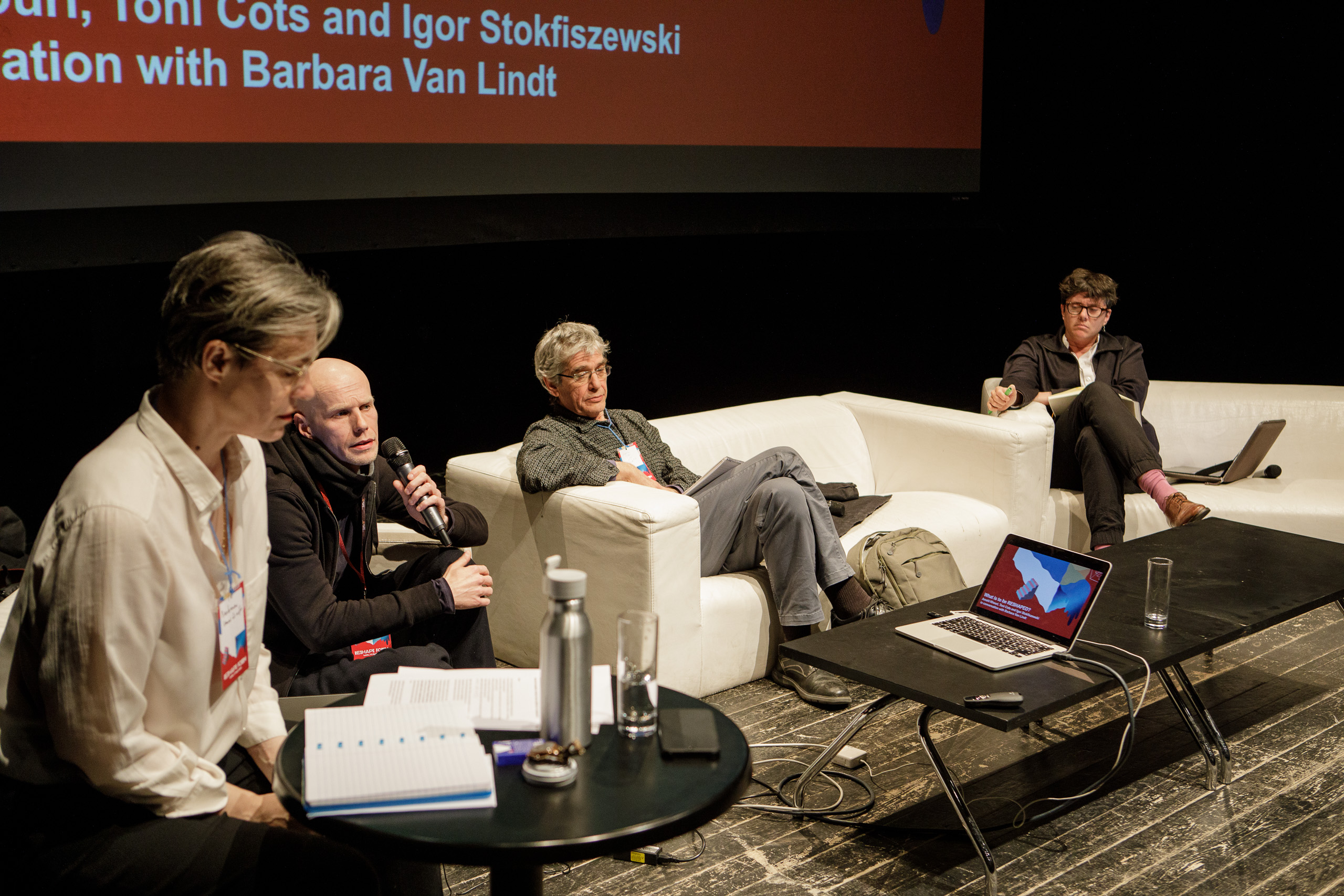
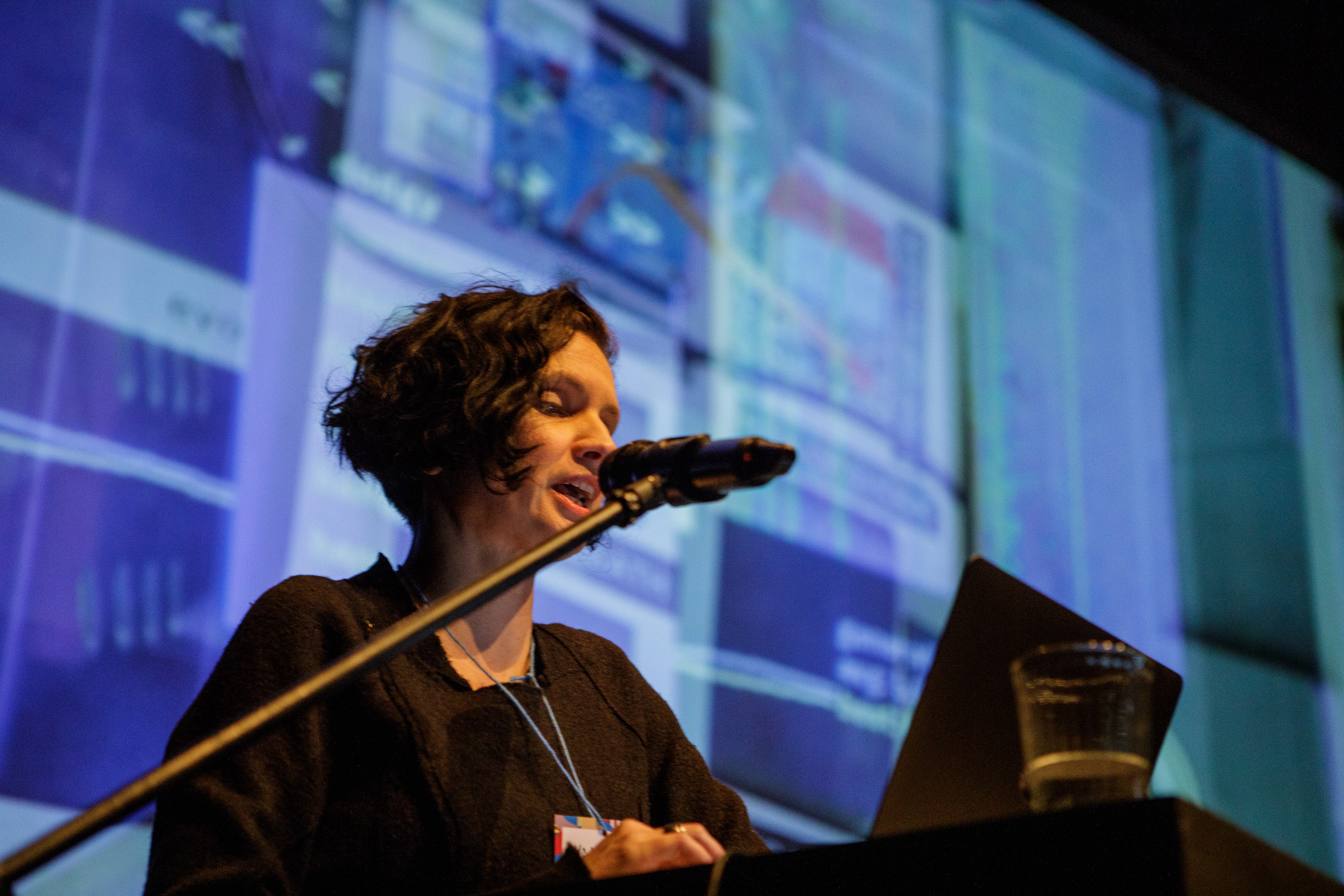
Podcast form Lublin Forum // Maja Kuzmanović: The Art of Futuring. Unknown, unknowable & uncertain
The complex uncertainties of our times make engaging with futures increasingly challenging. What could encourage proactive engagement with these challenges? The various approaches to uncertainty found in futures studies offer some starting points; where futures are iteratively imagined, tested, adapted and integrated into everyday experiences, as a continuous refinement of living in the long now.
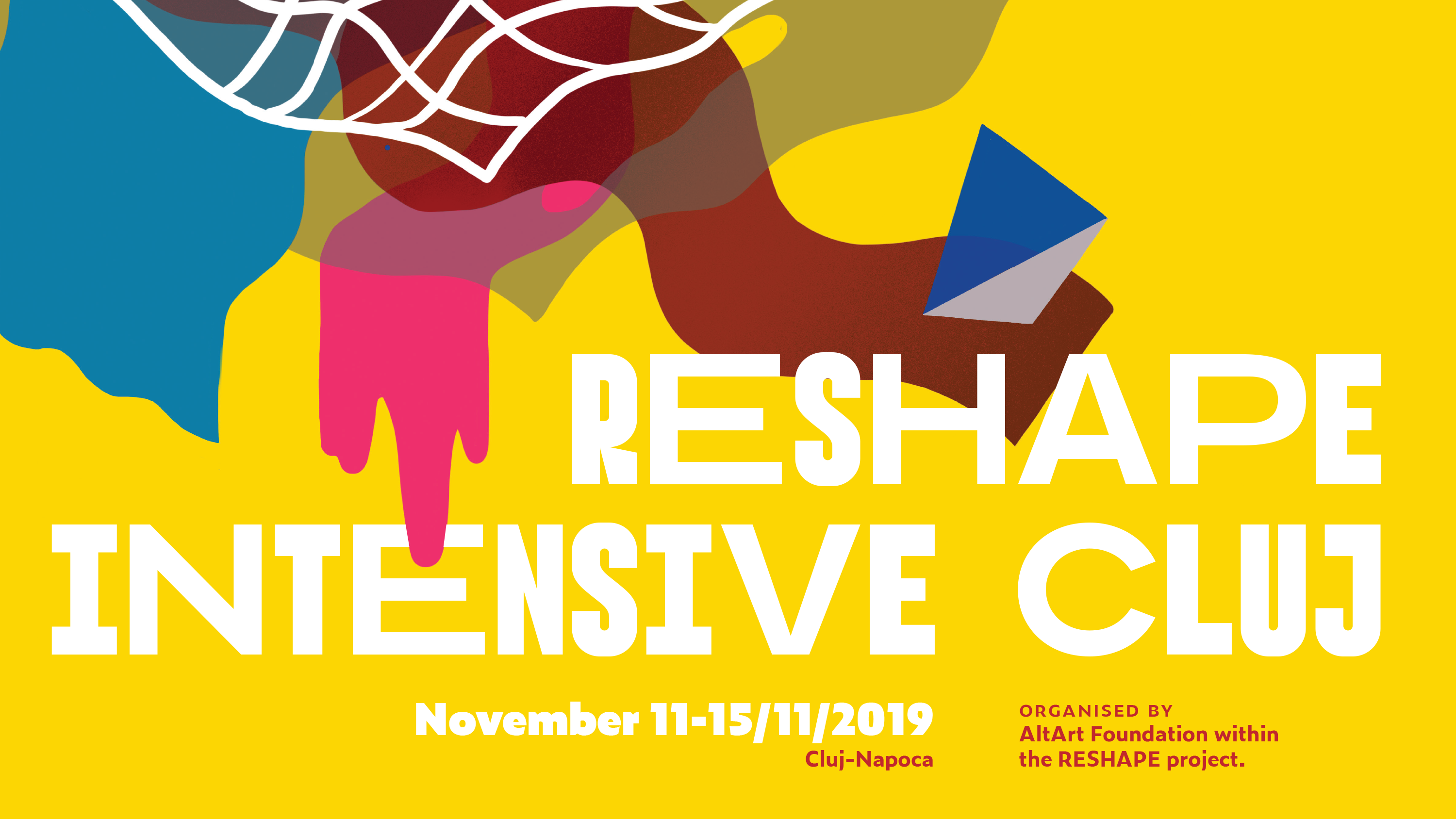
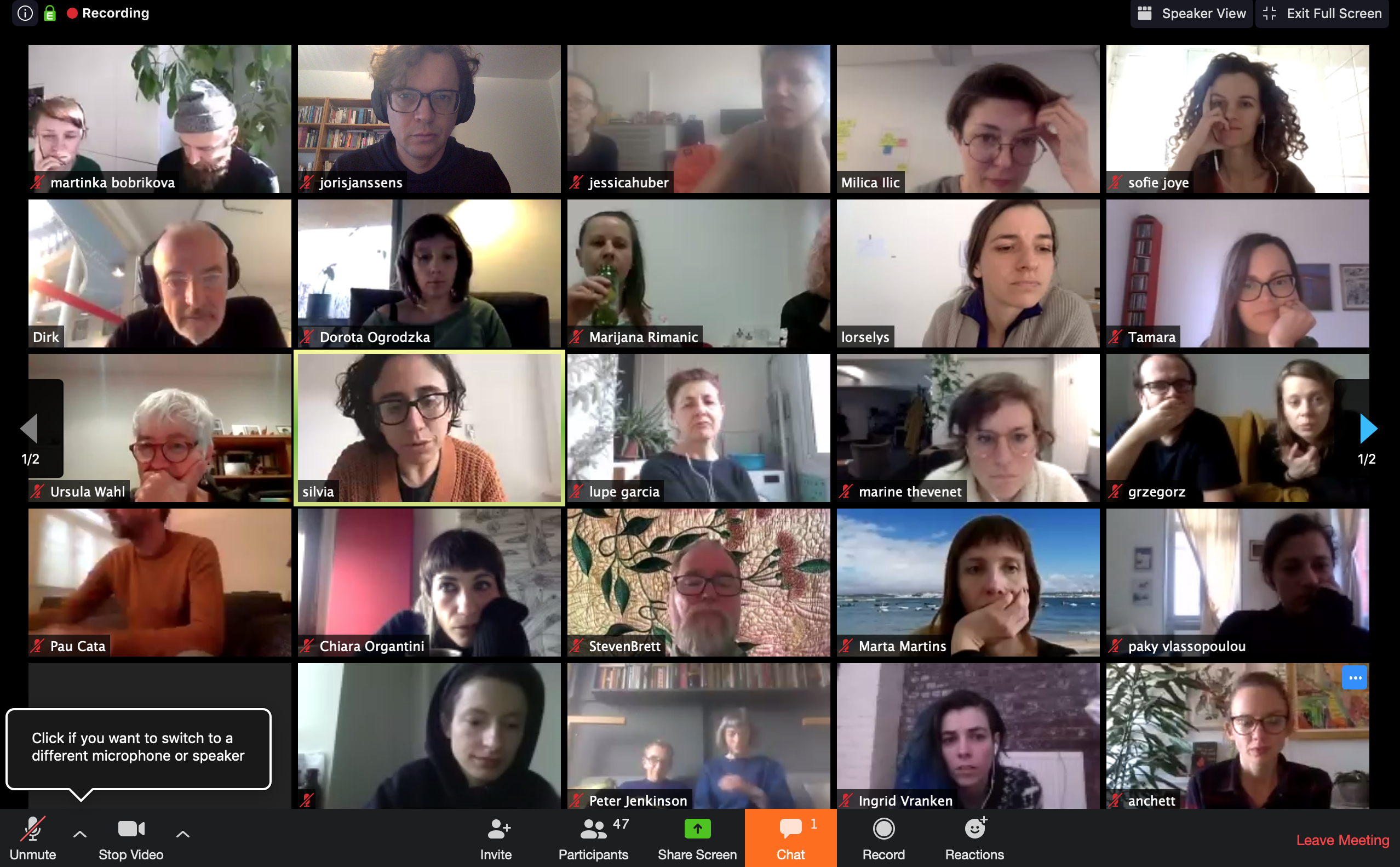
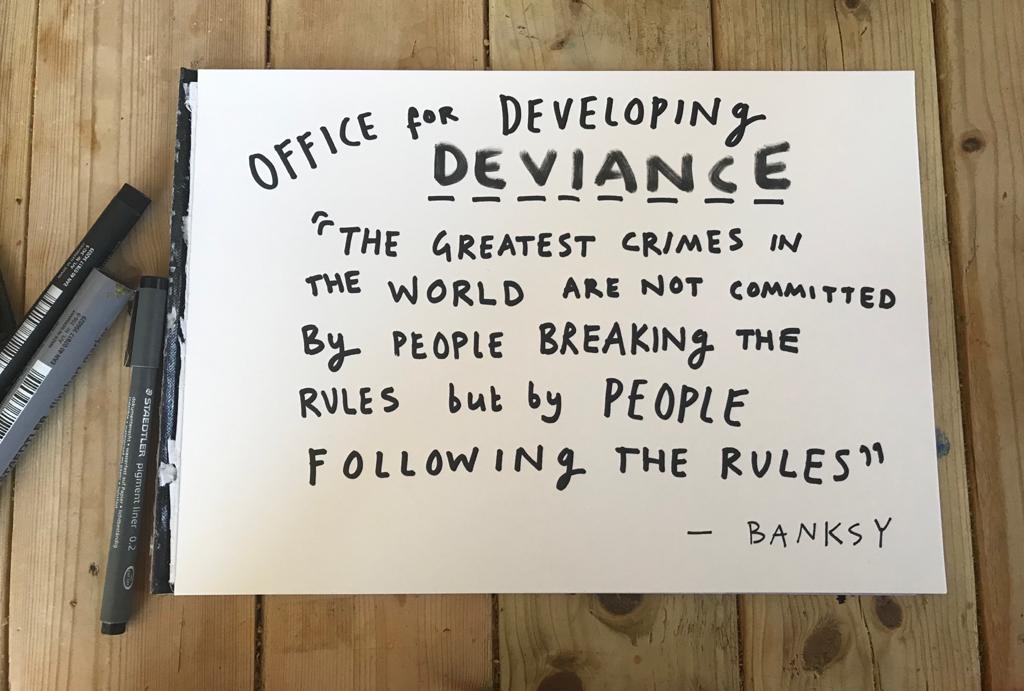
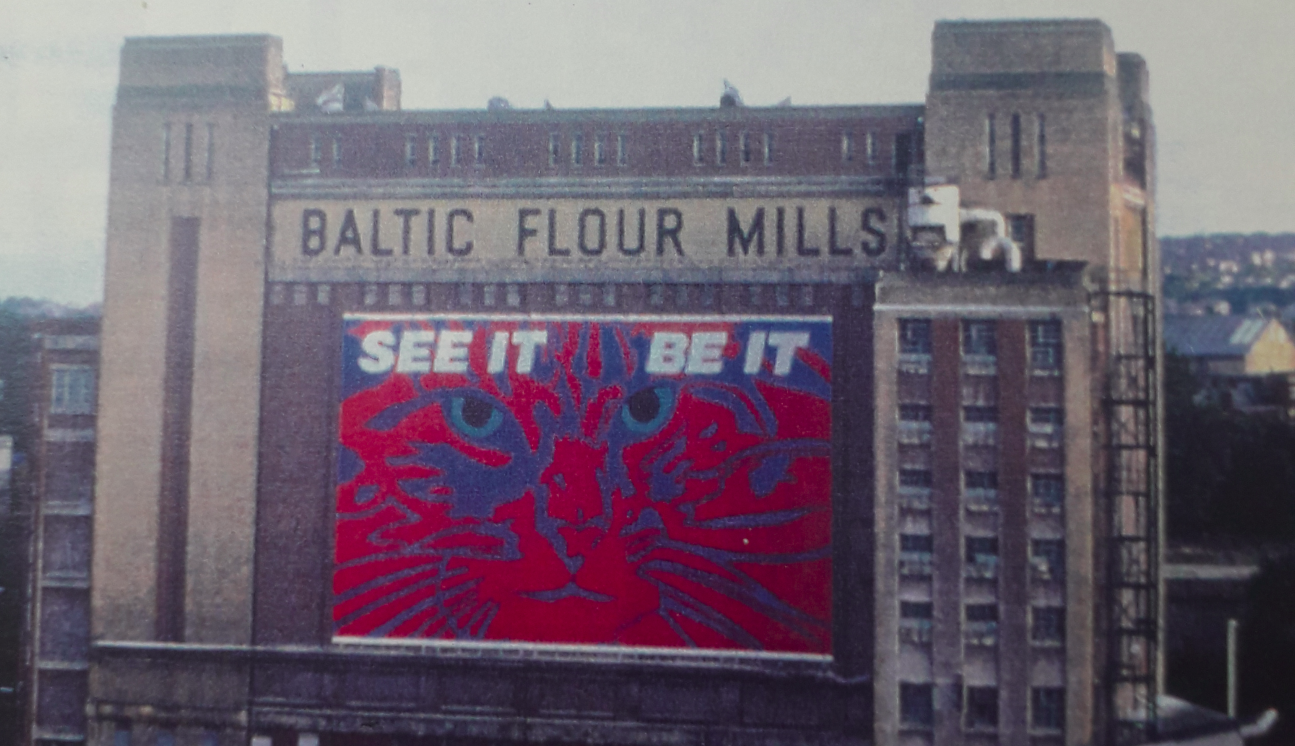
Hope Through the Fog
McGonagle argues that a similar solution like that to the Covid-19 virus, to the other virus – the virus of the small state agenda which has infected societal provision and expectations – lies in a cultural turn towards reciprocal social relations, which can be articulated in a total art process that is not limited to rhetorical modes of production and consumption. The stakes could not be higher for individuals and communities right now in this immediate crisis but questions about what principles will inform the future are also necessary and important, to see hope through the fog.
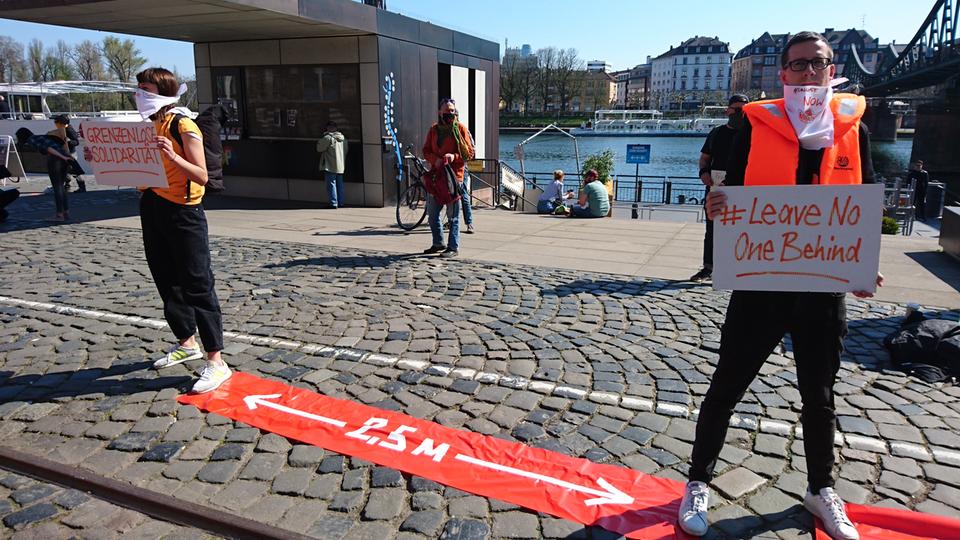
Lockdown Theatre (2): Beyond the Time of the Right Care: A Letter to the Performance Artist
Under the title ‘Lockdown Theater’ Schauspielhaus Zürich gathered theoretical thought experiments on theatre and performance during the Covid-19 pandemic. ‘How do a virus, a pandemic disease, and theatre affect each other? The texts do not address the crisis head-on, but touch it tangentially, without submitting to the information and opinion regime that it entails.’
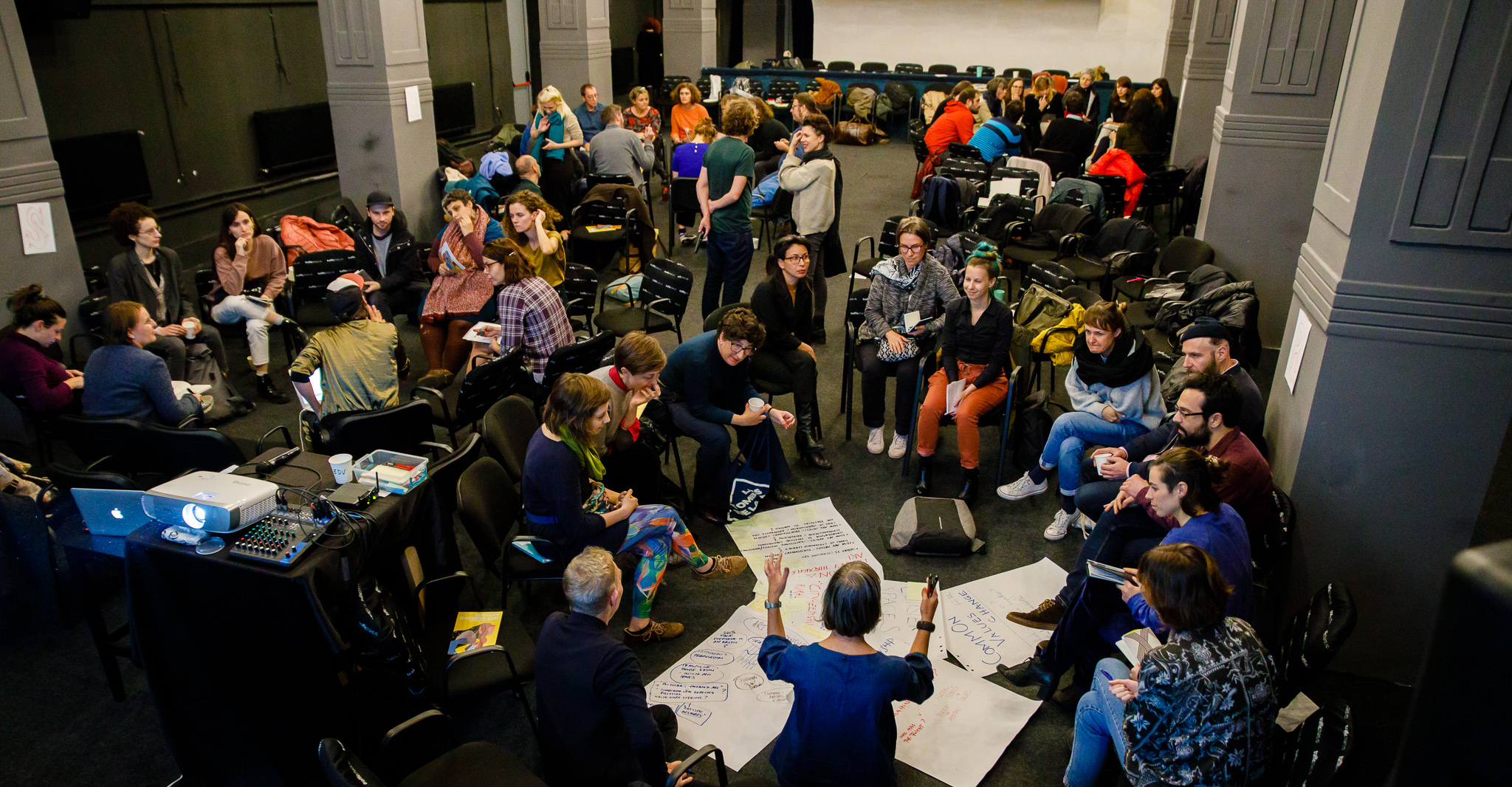
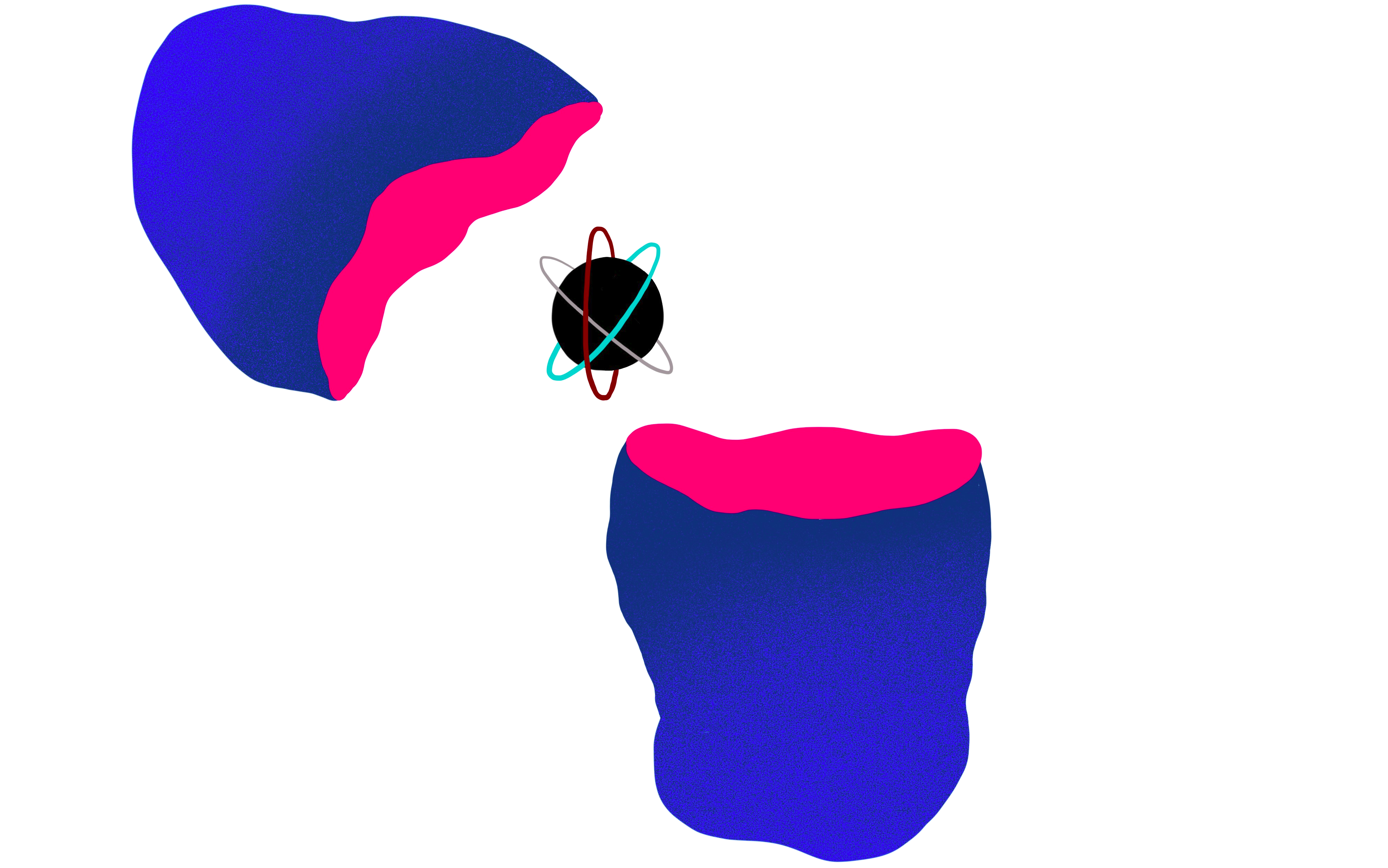
Changing the Game: The RESHAPE Transition
This text is a first attempt to join the dots between the proposals, to draft the initial contours of a framework for understanding them. To understand the proposals, it can be useful to first have a brief look at the origins and the promise of RESHAPE, and how the project itself was redesigned and reshaped during an intensive process within the RESHAPE community. Secondly, we begin a reflection on how these proposals might contribute to responding to the current needs within the arts field. In very different ways, these proposals respond to increasing pressures concerning how the arts are organized, governed, and supported (or not).
Wages for and against Art Work: On Economy, Autonomy, and the Future of Artistic Labour
In her article, Katja Praznik deconstructs the idea of artistic work as an expression of individual creativity independent from the economy and its processes. She demonstrates that this persistent ideology of autonomy of the arts contributes to the precarious position of artists and the exploitative working relations in the arts sector. Instead, she suggests to look at artistic work as labour, embedded in economy and subject to the economic relations. Taking inspiration from the arguments for the recognition of invisible labour put forward by Marxist feminists, Praznik calls for a demystification of creativity and supports the imperative of artistic remuneration, as a necessary step towards a broader goal of redefining value and labour in our society.
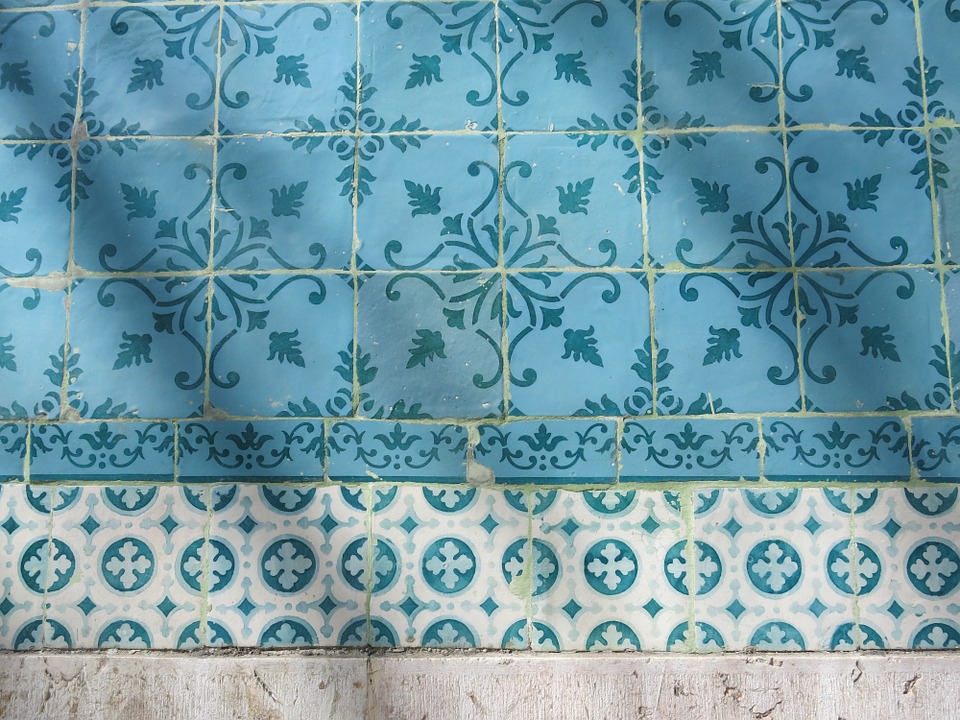
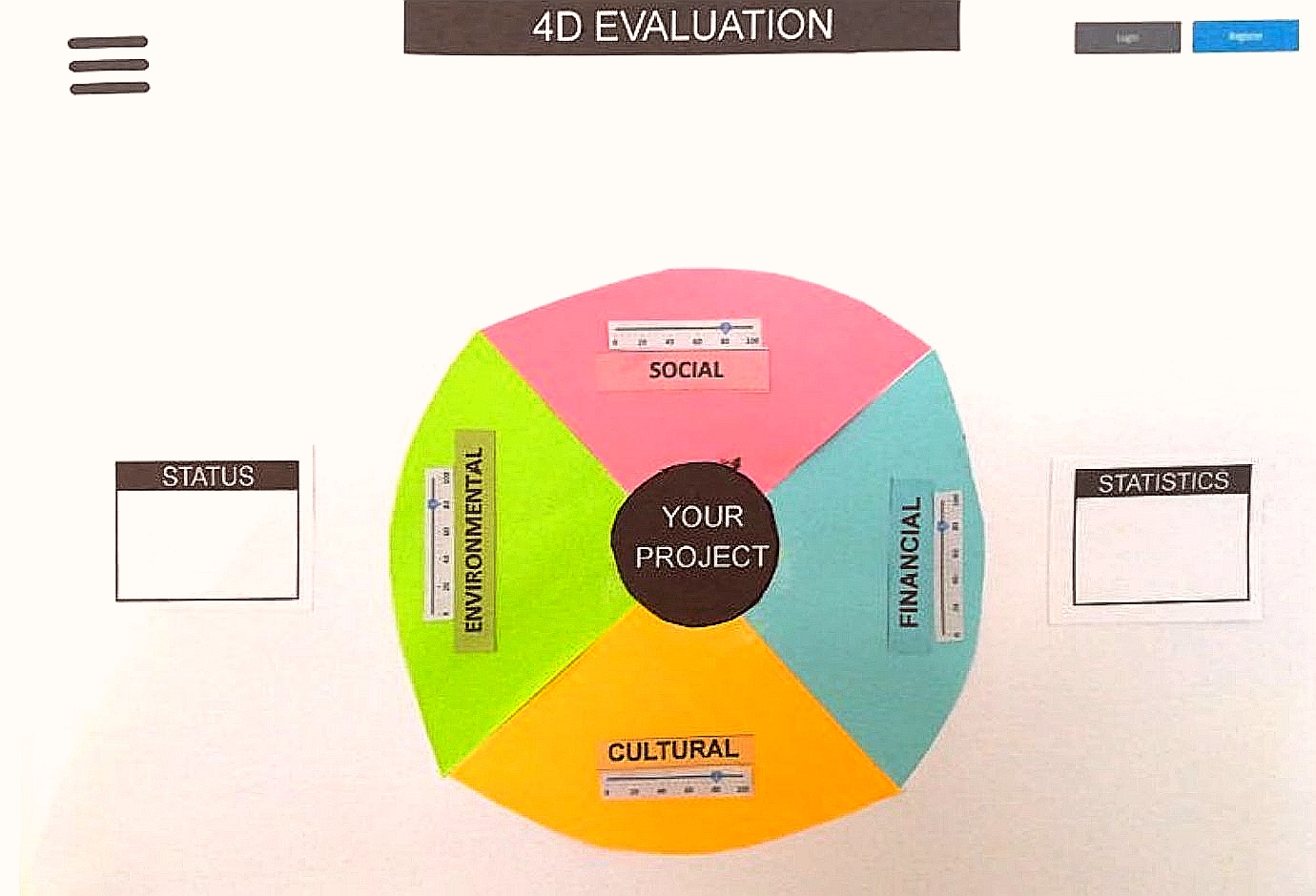
On Fair Governance and Evaluation — An interview with Katarina Pavić
Katarina Pavić is a cultural worker and activist, who worked in the independent cultural scene in Croatia and the wider region of former Yugoslavia since 2005. Her work has combined advocacy and research at the intersection of civil society development, activism, and cultural critique. She has been the facilitator of the fair governance models trajectory of RESHAPE, which describes it as a ‘reflection-oriented process, where its focus – governance of artistic and cultural institutions and collectives – functions simultaneously as a form of critique and an open invitation to imagine and practice a different way of being-in-common’. In this conversation, she spoke from London where she pursued her MA in culture industry and to which she has just moved back.
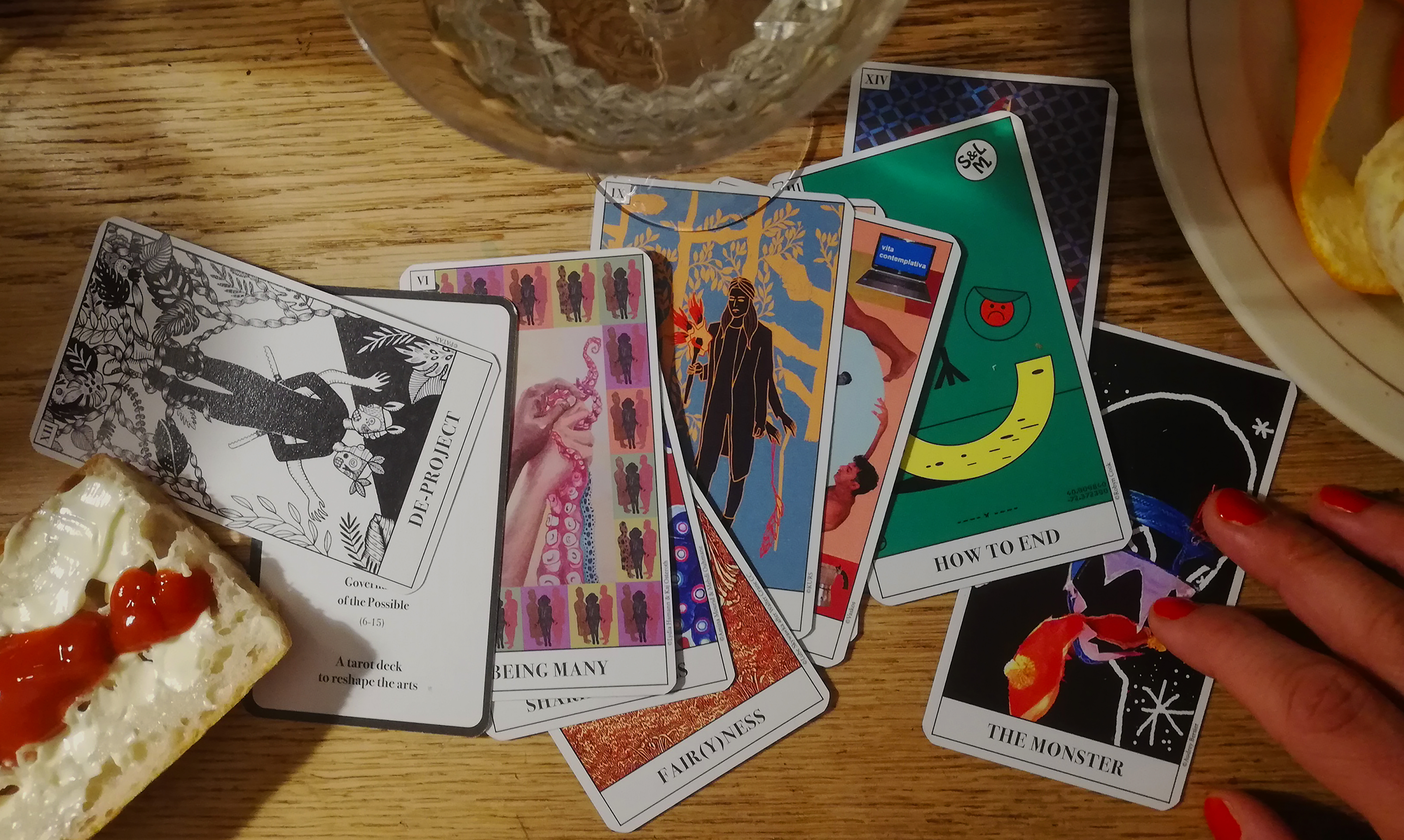

Art and Culture after Covid-19
Everyone seems to agree that the Covid-19 pandemic has a huge impact on the economy, social relations, politics, and culture. We’re nowhere near through this crisis yet, and alternative futures are already being promoted, others wait to ‘get back to normal’, while most people are too busy coping with the emergency. In this ferment of events and contestation, it’s valuable to be reminded of the bigger picture. This essay by Professor Justin O’Connor (University of South Australia) places the current situation of cultural organisations and workers in a historical context, reminding us of their developing relationship with the political economy of recent decades. It is also challenging because it asks what compromises have been made by cultural actors in pursuit of recognition and at what costs.
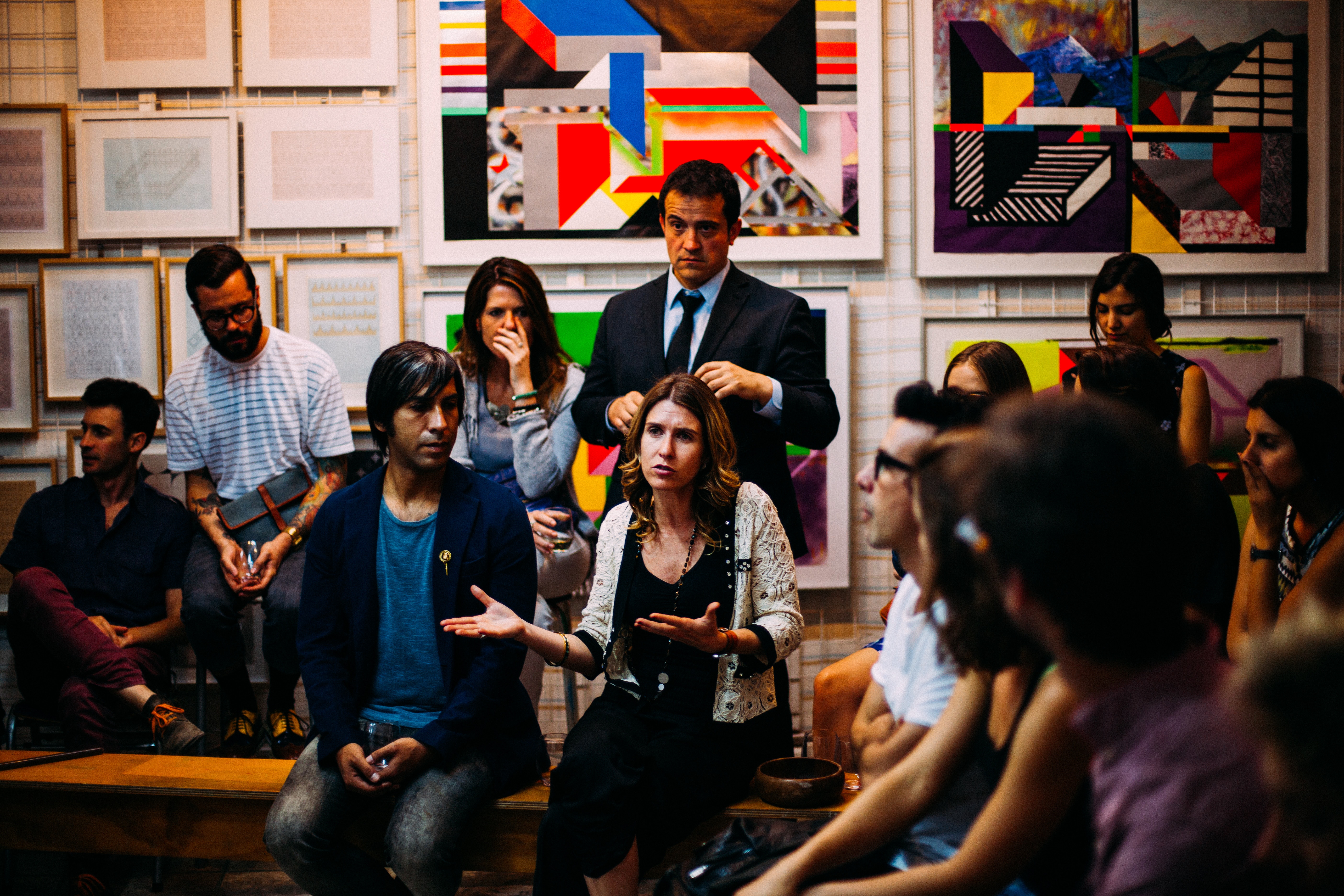
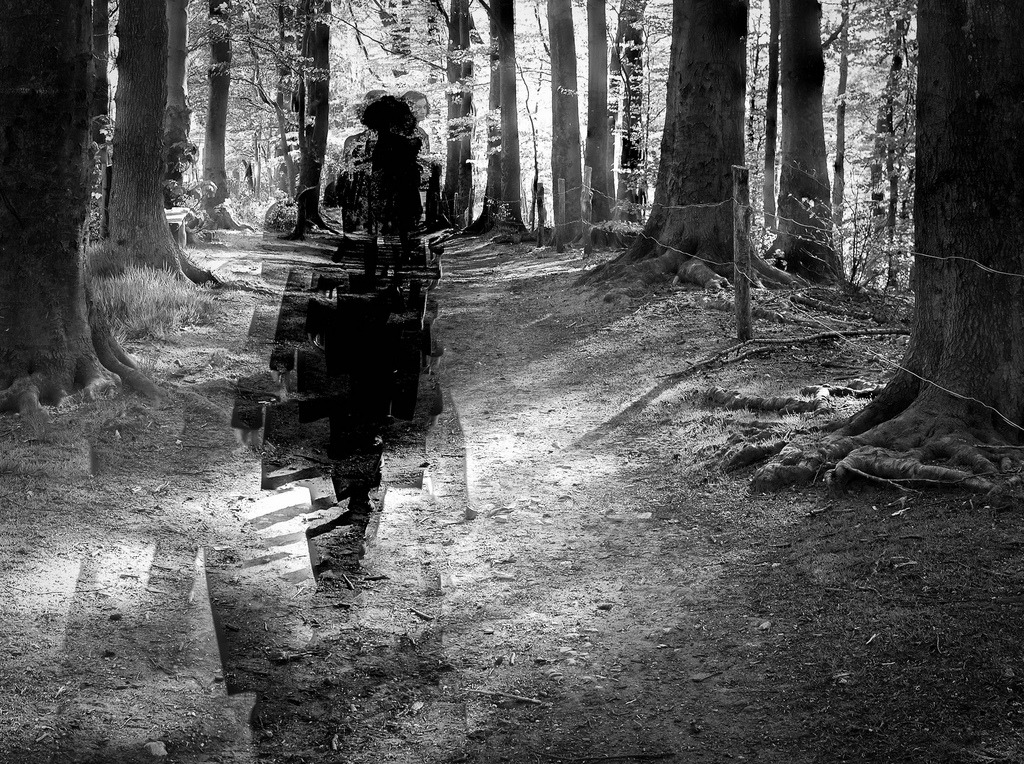
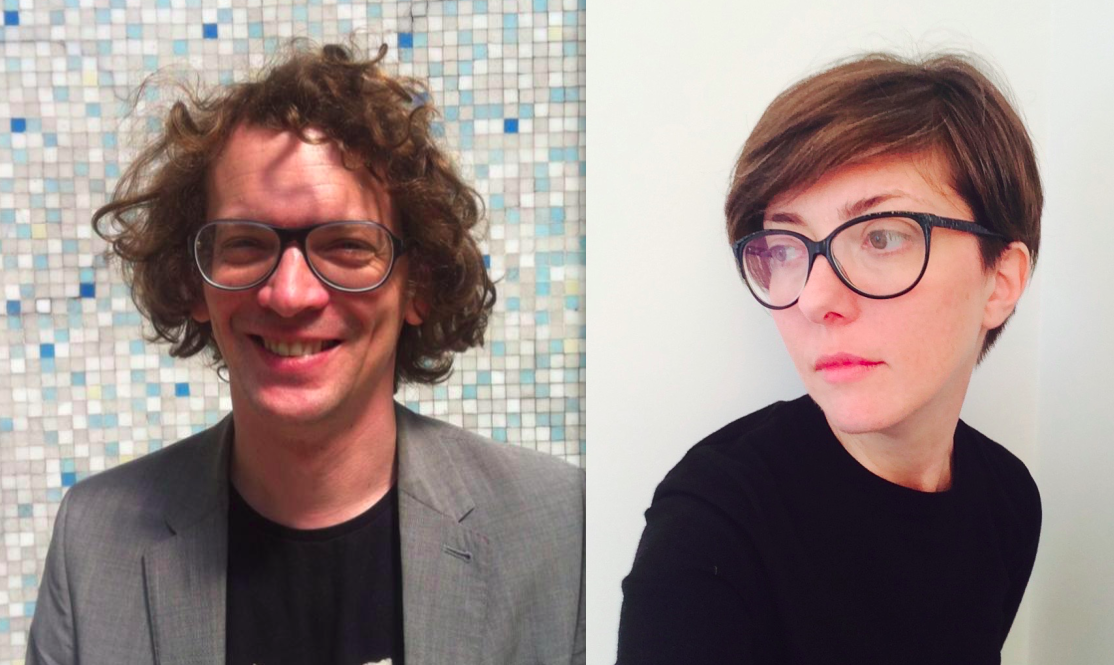
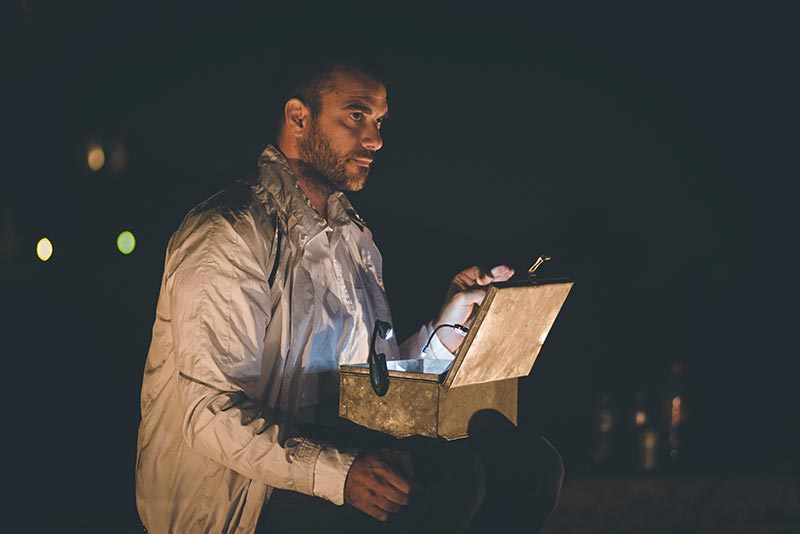

Rounding up prototypes and getting ready to implement our innovative ideas
After 15 workshops where Reshapers, Facilitators and Partners were discussing the possibilities for reshaping the art field, the time came to step back a bit and to formulate those discussions into more elaborate reshaping prototypes that can be used across the sector.